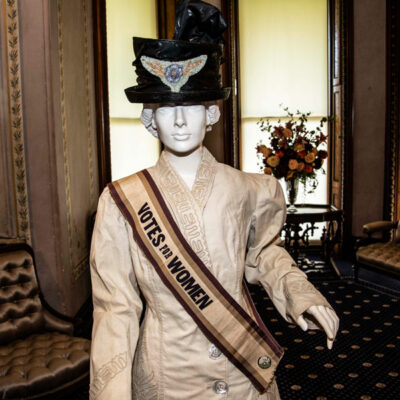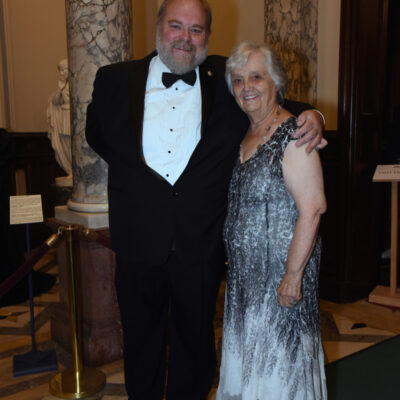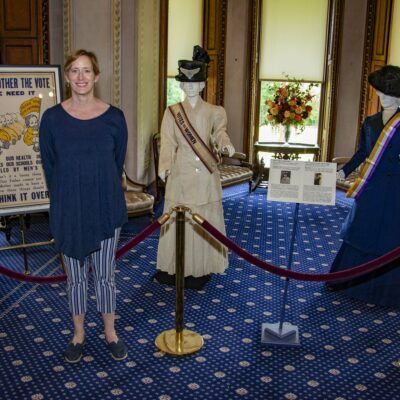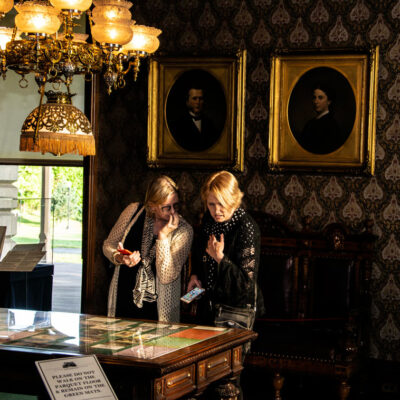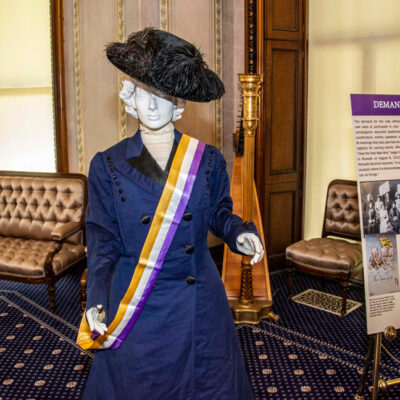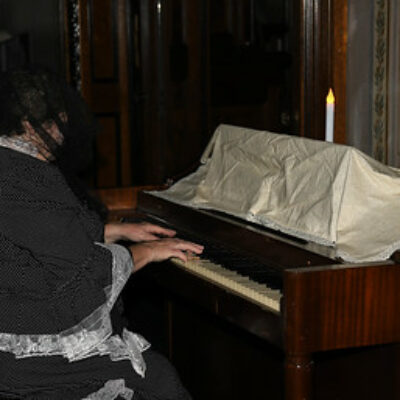LeGrand Lockwood, 1820-1872
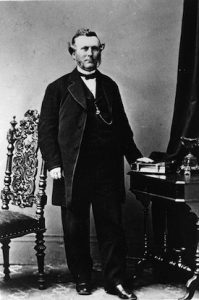
Born in Norwalk, Connecticut in 1820, LeGrand Lockwood made his fortune in New York City. He started working at age 18 as a clerk for a brokerage firm on Wall Street, but by age 23 he had already become partner in the firm known as Genin and Lockwood, Brokers. He became a member of the New York Stock Exchange in 1851 and six years later, upon becoming a senior partner in his firm, Genin and Lockwood, he renamed the firm Lockwood and Co.
The firm primarily dealt with the trading of leading railroad stocks of the day, including the Michigan Southern Railroad, later known as the Lake Shore and Michigan Southern Railroad, in which Lockwood held a vice-presidency. Lockwood and his firm’s reputation on Wall Street were so well-regarded that in 1863 he was elected treasurer of the New York Stock Exchange. An 1868 newspaper was quoted:
“[Lockwood and Co.]’s prominence and stability during the [Civil] War, and its large subscriptions to national loans established its position as THE LEADING STOCK HOUSE of the country.”
Lockwood traveled to Europe in 1863 to sell war bonds that would help him raise money for the Union. He returned home an even wealthier man and began to build his palatial summer home in Norwalk, CT. However, the post-Civil War economic boom was coming to an end.
Black Friday 1869
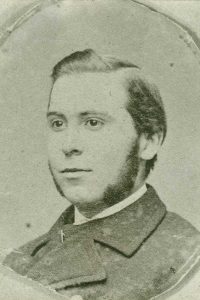
Lockwood started the process of taking his company out of bankruptcy by selling his controlling stock and vice-presidency in the Lake Shore and Michigan Southern Railroad to Cornelius “Commodore” Vanderbilt for $10 million.
He also took out a mortgage on the Mansion in Norwalk. By December 1st of that year, Lockwood and Co. was able to resume business and LeGrand Lockwood, his son Williston, and their associates were readmitted into the New York Stock Exchange. Lockwood worked tirelessly to gain his former standing on Wall Street, but he unfortunately passed away in 1872 before he could fulfill that promise.
His widow, Ann Louisa Lockwood, lost the house to foreclosure in 1874.







